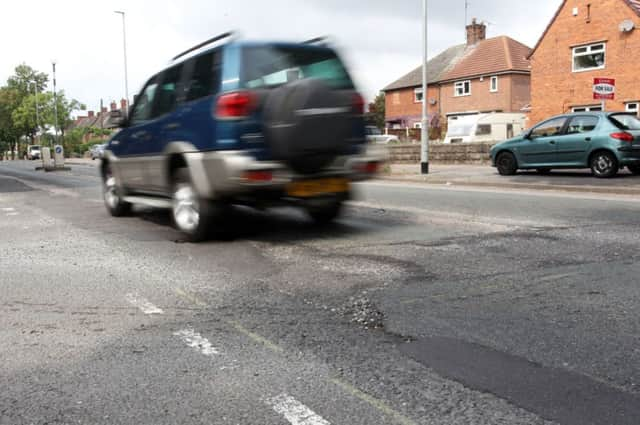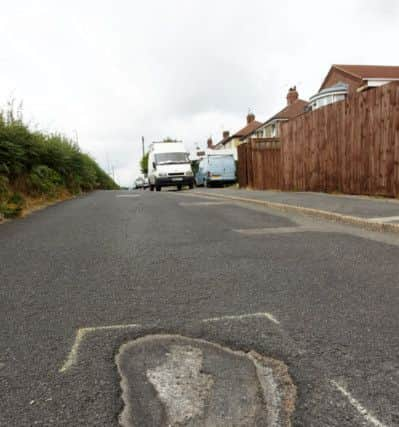Pot hole epidemic on county roads


Figures released to Chad under the Freedom of Information Act show that in Ashfield, 1,001 pot holes were repaired in 2013/14, while in Mansfield, 566 were filled in.
Considering there were 253 working days in the year, that equates to around six pot holes a day being repaired in just our two districts alone, not taking into account those that were filled in elsewhere in the county.
Advertisement
Hide AdAdvertisement
Hide AdAccording to Nottinghamshire County Council, last year it filled nearly 34,000 pot holes countywide at a cost of around £2.8m and the pot hole problem has become so chronic because of bad winter weather: first the snow and ice of a few years ago, then the very wet weather of last year.


These conditions have caused damage to both the surface and foundations of the roads, and the authority is now implementing a three-pronged approach to pot holes and patching in a bid to tackle the issue.
Chris Charnley, group manager for highway management at the county council, said: “The council follows a strategy of prevention rather than cure, with programmes of surface dressing carried out to preserve the condition of existing sound road surfaces and resurfacing of worn-out roads, but this still leaves many roads in need of substantial work rather than patching, particularly minor roads and estate roads.”
The new approach involves three basic principles - repairing pot holes ‘right first time’, on time and quickly, with the use of ‘find and fix teams’; repairing nearby pot holes at the same time; batching together patching works into small areas using new methods.
Advertisement
Hide AdAdvertisement
Hide AdConventionally pot holes were filled with hot asphalt, rolled and sealed, but this was time-consuming, labour intensive and expensive, even though it resulted in a neat repair.
The new system uses a newly-developed mixture of cold asphalt which comes in bags, can be tipped into the pot hole, compacted with a hand rammer and which then dries to a very hard surface in just two minutes.
Repairs can be made by one person in less than five minutes and can also be carried out in the rain because the material soaks up any water within the pot hole.
The council says that though the repairs are not as neat as conventional repairs, they are still high quality, permanent and ‘right first time’.
Advertisement
Hide AdAdvertisement
Hide AdThis new cold asphalt material is now being used across the county where pot holes found by highways inspectors during routine inspections are being filled there and then, rather than ordering a repair from a conventional patching gang.
In addition, four new ‘find and fix’ teams are now operating across the county, responding to residents reports of pot holes and repairing any found with the new material.
Another new repair method called Nu-phalt is also being used to fix larger areas where there may be a concentration of pot holes or very large pot holes.
The repairs are batched together and an infra-red unit is used to heat up the road surface around the pothole, mixing the resultant putty with a special material and then re-laying the mixture.
Advertisement
Hide AdAdvertisement
Hide AdThis new material fuses with the adjacent road surface to give a water-tight repair which can be completed within 20 minutes.
“These improved methods are expected to dramatically reduce the time taken to repair most pot holes and create a much more responsive service for residents,” said Coun Kevin Greaves, chairman of the transport and highways committee.
“There are still many locations where it will be more appropriate to use conventional repair methods but, overall, the two new methods will mean many more pot holes can be repaired in a cost-effective way.”
Residents are being encouraged to report the location of pot holes at www.nottinghamshire.gov.uk or on 0300 500 8080.